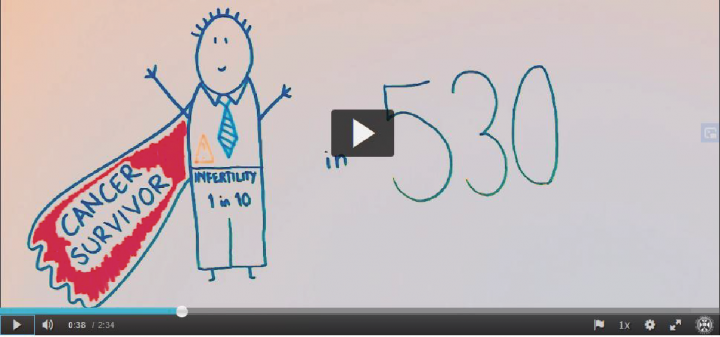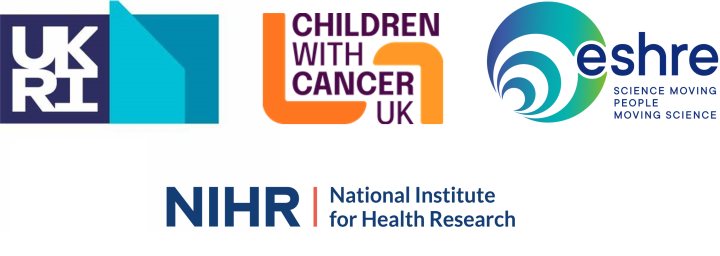Mitchell group
Our research is focused on male fertility preservation, disorders of sex development (DSD) and testicular cancer.
Professor Rod T Mitchell
Professor of Developmental Endocrinology

- Consultant Paediatric Endocrinologist
- Principal Investigator
Contact details
Address
- Street
The Centre for Reproductive Health
Institute for Regeneration and Repair (IRR)
4-5 Little France Drive
Edinburgh BioQuarter- City
- Edinburgh
- Post Code
- EH16 4UU
Availability
Department of Paediatric Endocrinology
Royal Hospital for Children and Young People
Edinburgh BioQuarter
50 Little France Crescent
Edinburgh
EH16 4TJ
Current Research Projects
1) Fertility preservation in childhood cancer survivors
Our research group interests include fertility preservation in children with cancer and this focuses on developing strategies for removing and storing testis tissue from patients prior to potentially sterilizing treatments in order that germ cell development can be achieved using in-vitro or in-vivo techniques.

To view the above video, please click here
In 2015, we became the first UK group to establish a fertility preservation research programme to store testicular tissue from young cancer patients prior to their treatment. This programme in males, combined with our well-established fertility preservation programme for females, has resulted in the establishment of a collaboration of scientists and clinicians working as part of the 'Edinburgh Fertility Preservation’ programme for which Professor Mitchell is the lead for male fertility preservation. This unique collaboration combines clinical and laboratory research aimed at optimising fertility for children and young adults with cancer. We have received funding for our male fertility preservation work from Children with Cancer UK, Wellcome and UKRI.
Visit the Edinburgh Fertility Preservation website
2) The germ stem cell niche in the human fetal testis and the origins of testicular cancer
Our research is also focused on fetal development of the testis and particularly that of germ cells in relation to the origins of testicular cancer and infertility. Testicular cancer is thought to result from disrupted development of germ cells during fetal life which results in pre-malignant germ cell neoplasia in situ (GCNIS) cells. The precise mechanisms of how this occurs are unknown. Understanding the origins of testicular cancer and developing fertility preservation strategies require further understanding of the germ stem cell niche and we hope that by using the models described above that we will learn more about the interactions between germ cells and their surrounding cells during testis development. Our research on origins of testicular cancer has demonstrated the relationship between the stage of germ cell development and their invasive potential. We also show that alteration of key signalling pathways and repression of transcription factors can induce testicular dysgenesis in the human fetal gonad.
3) The effect of exposure to endocrine disruptors on development of the human fetal testis
Fetal testis development may potentially be impaired by exposure to environmental endocrine disrupting chemicals (EDCs) and this can have consequences for subsequent reproductive health in males. Potential EDCs include plasticisers, pesticides and pharmaceuticals and we are investigating the impact of a variety of these chemicals using our experimental animal and human models of testis development. Our recent research in this area has focused on effects of exposure to paracetamol (acetaminophen) on male reproductive development. We have shown that exposure to paracetamol can reduce the number of germ cells and impair testosterone production in human fetal testis tissues, which could affect reproductive health in males in later life.
Group members
Vacancy – Lab Manager/Senior Technician
Michael Rimmer – SCREDS Lecturer
Federica Lopes – Post-Doctoral Fellow (associate member)
Michaela Rodger - Clinical Trial Manager
Abigail Lewis - Research Nurse
Current PhD/MD students
Grace Forsyth – PhD student
Kathleen Duffin - PhD student
Iris Sanou – PhD student (Netherlands)
Current grants
2019 – 2027: UKRI Future Leader Fellowship – £1.76m
Role: Principal Investigator
Title: Protecting spermatogonial stem cells from chemotherapy-induced damage for fertility preservation in childhood cancer
2023 – 2026: Children with Cancer UK (CWCUK) - £290,454
Role: Principal Investigator
Title: Transplantation of cryopreserved testicular tissue to restore fertility after childhood cancer
2023 – 2026: National Institute for Health Research (Research for Patient Benefit (RfPB) Grant): - £349,738
Role: Lead Investigator (Joint).
Title: The development and evaluation of the first fertility preservation patient decision aid to support young males with cancer
2022 – 2026: Medical Research Council (MRC) - £906,715
Role: Co-Applicant.
Title: Reproductive function in teenage and young adult cancer patients in the UK
2021 – 2024: ESHRE Research Grant - £65,000
Role: Principal Investigator
Title: Fertility preservation in (peri)pubertal boys: Developing an approach for simultaneous cryopreservation of sperm and spermatogonial stem cells from testicular biopsies
2021 – 2024: ESHRE Research Grant - £177,000
Role: Co-Applicant
Title: Exploiting multi-omics to assess and map the fertility potential of cryopreserved prepubertal testicular tissues
Previous grants
2019 - 2022: Australian National Health and Medical Research Council (NHMRC) - £292,000
Role: Co-Investigator
Title: The importance of classical versus backdoor androgen production pathways in masculinisation, fertility and lifelong male health
2018 - 2022: National Institute for Health (NIH) - £44,058
Role: Co-Investigator
Title: Placental Origins of Phthalate-Induced Changes in Fetal Reproductive Development
2016 – 2019: Children with Cancer UK - Project Grant – £249,449
Role: Principal Investigator
Title: Fertility Preservation in prepubertal boys with cancer
2016 – 2021: MRC Programme Grant – £2.18m
Role: Co-Investigator
Title: The role of androgens in health and disease
2016 - 2019: Michelson Grant in Reproductive Biology Project Grant - £730,000
Role: Co-Applicant
Title: Translation of an androgen miRNA sterilant: pre-clinical validation & a clinical trial in cats & dogs
2014 – 2018: FP7 EU Initial Training Network - £2.5m
Role: Full Partner/Principal Investigator
Title: GROWSPERM
2012 – 2017: Wellcome Trust Intermediate Clinical Fellowship - £1.03m
Role: Principal Investigator
Title: The germ stem cell niche and the origins of testicular germ cell tumours
Publications
A full list of publications can be found on Professor Mitchell's research profile:
Publications - Professor Rod Mitchell
Lab media
Fertility preservation in boys:
Birth of live monkey following prepubertal testicular transplant
Painkillers in pregnancy and fertility
70 Years of NHS Scotland - Looking after patients from cradle to grave
Paracetamol in pregnancy
Principal external collaborators
Jan-Bernd Stukenborg - Karolinska Institute, Sweden
Anne Goriely - University of Oxford, UK
Ans van Pelt - UMC Amsterdam, Netherlands
Find out more
Edinburgh Fertility Preservation website
Edinburgh Fertility X account @EdinFertility
Rod Mitchell X account @RodTMitchell


